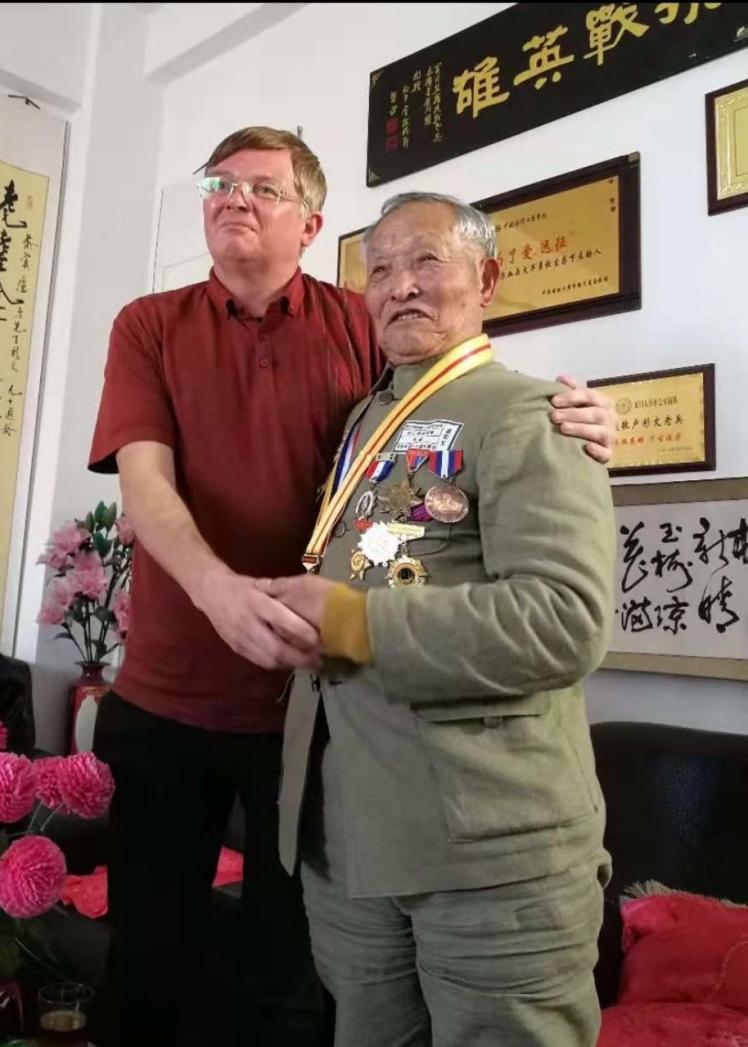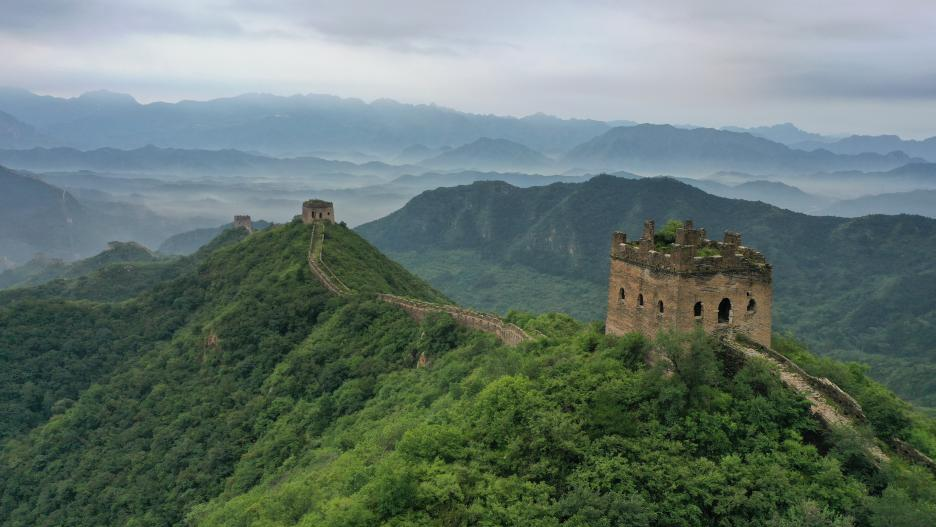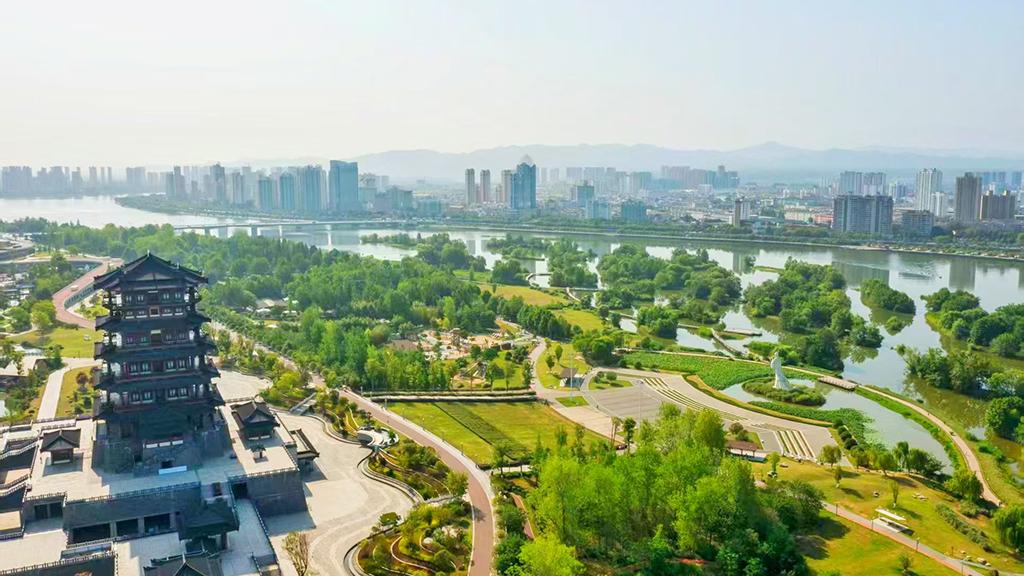A?Chinese hero remembered in reverence

Chris Nash meets Lu Caiwen, a Chinese war hero, during a visit to southwest China's Yunnan province in 2019. (Photo provided by Chris Nash)
As the famous British poet Elizabeth Barrett Browning wrote, "How do I love thee? Let me count the ways." Her words poignantly articulate my affection for China. Reflecting on more than a decade of life and work there, a stream of vivid memories returns with remarkable clarity.
In Beijing, I strolled through the tranquil winding maze of traditional alleyways called hutong, where elderly residents basked in the soft Beijing autumn sunshine, exchanging stories in the distinctive tone of the Beijing dialect.
In Guanghan, southwest China's Sichuan province, I stared deep into the profound and mysterious masked eyes of one of the world's most ancient civilizations at Sanxingdui Museum, rapt in wonder at their sophisticated bronze artistry, works as intriguing and expressive as modern surrealism.
Further south in Yunnan province, I had my breath taken away by the myriad of rice terraces dug by the Hani ethnic minority, shimmering like dragon scales in the rising sun. Steaming in front of me on a wobbly table in a street-side restaurant, is a bowl of fragrant broth where the terrace rise swims in the form of long, white, strands of rice noodles.
At the incredible Mogao Caves in Dunhuang, northwest China's Gansu province, I shook the sand from my shoes and the darkness from my eyes and blinked in the presence of the beauty of Buddhist art.
But beyond the landscapes and artistry, it was the people themselves who profoundly moved me - faces radiating warmth, shyness, honesty, and resilience. Their consistent kindness revealed China's true spirit.
Among the many memorable encounters, one stands out with particular poignancy: my meeting Lu Caiwen, a Chinese war hero, in the far southwest Yunnan city of Tengchong, which is very close to the border with Myanmar.
I had the greatest honor to visit Comrade Lu in November 2019 during an event in Tengchong, Yunnan province. Lu is in his nineties, but as you sit in his living room, enchanted by his merry shining eyes, it's impossible to believe this is his real age. His extraordinary life story left an indelible mark on my heart.
He came of age in one of the most terrible periods of recent Chinese history, when the invading Japanese imperial army threatened to overrun the whole of China. After the Japanese military invaded western Yunnan and implemented a scorched-earth policy, Lu witnessed unimaginable atrocities. He abandoned studies to attend a military training school and later joined the Chinese Expeditionary Force.
"When the country is in need, I never hesitated to give up my life," he stated. "Patriotism compelled us all to the battlefield."
Lu fought in many heroic battles to resist Japanese aggression. When he spoke about the 1944 Battle of Tengchong, he always grew especially emotional. In that brutal campaign, the Chinese Expeditionary Force paid a steep price - 9,168 soldiers gave their lives to retake Tengchong, the first city to be reclaimed in the Chinese People's War of Resistance Against Japanese Aggression.
As he recalled comrades falling beside him one after another, tears welled up in his eyes and his voice trembled with sorrow: "At Laifeng Mountain, when the Japanese broke through our defenses, our troops crawled up the hillside under enemy fire, inch by inch, with their bare flesh, and reclaimed the strategic high ground."
Today, at the foot of Laifeng Mountain lies a national martyrs cemetery, the resting place of those fallen heroes. Lu visited the cemetery every few days to lay flowers and pay tribute to his comrades who never returned.
Listening to his stories, I remember that almost at exactly the same time he crawled his way up Laifeng Mountain under murderous fire from the enemy, 11,000 kilometres away in central Italy, my grandfather, Alfred Nash, was crawling up another mountain, called Monte Cassino, under equally withering gunfire from the German army. Monte Cassino was as pivotal in the war in western Europe as Laifeng was in the war in Asia.
Both were grueling campaigns, and both speak to the iron will of the troops and people of the Allies in the fight against fascism.
Lu was just one among millions of ordinary Chinese who demonstrated extraordinary courage and selfless dedication to their homeland. Their sacrifices were not only instrumental in China's resistance but also pivotal in the global effort for peace. In my view, the role China played in the global fight against fascism has been vastly underrepresented in much of Western historical discourse.
China's prolonged resistance tied down large numbers of Japanese troops, greatly weakening their ability to fight on other fronts and giving the Allies precious strategic room to focus on Nazi Germany. History must remember Lu Caiwen and his fellow soldiers, and the indispensable role they played in preserving global peace.
My grandfather died after a well-deserved full and happy life. I was heartbroken to hear that Mr. Lu also passed away at the end of last year. I can picture them together in my mind, comrades in arms. I believe that if they had ever met, they would have become close friends. My grandfather would have listened to Lu's stories just as intently as I did.
They shared the same slightly mischievous twinkle in their eyes, maybe the light in the eyes of those who have looked on the brutality of war and know better than us, the precious everyday beauty of peace.
(Chris Nash is the former chair of the Society for Anglo-Chinese Understanding)
Photos
Related Stories
- Royal Scots spread heroic rescue of British POWs by Chinese fishermen to wider audience
- China's national library exhibits rare WWII documents
- Upholding correct view of WWII history, firmly defending historical justice
- Echoes of the Lisbon Maru: A Story Remembered
- American journalist's photos and writing rekindle China's wartime memories
- Blood, memory, and untold stories: Global journalists explore China's WWII sacrifices
- Preserving the legacy of World War II: Why the postwar order still matters
- Feature: Chinese centenarian veteran recounts Sino-American cooperation in WWII
- Commentary: Echoes of Marco Polo Bridge -- China's unforgettable contributions to World Anti-Fascist War victory
- Relics tell of China-Southeast Asia WWII bond
Copyright © 2025 People's Daily Online. All Rights Reserved.









